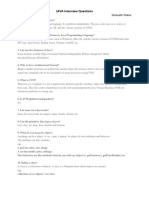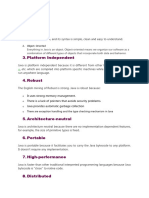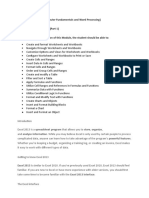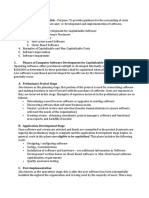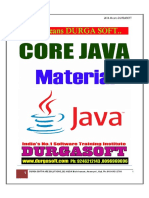0% found this document useful (0 votes)
32 views7 pagesJava Final Exam Long Answers
The document outlines key concepts and features of Java, including its object-oriented nature, platform independence, and various data types. It explains the structure of a Java program, variable declaration, types of statements, operators, classes and objects, constructors, and method overloading. Additionally, it provides examples to illustrate these concepts and their applications in Java programming.
Uploaded by
Rohit PanwarCopyright
© © All Rights Reserved
We take content rights seriously. If you suspect this is your content, claim it here.
Available Formats
Download as PDF, TXT or read online on Scribd
0% found this document useful (0 votes)
32 views7 pagesJava Final Exam Long Answers
The document outlines key concepts and features of Java, including its object-oriented nature, platform independence, and various data types. It explains the structure of a Java program, variable declaration, types of statements, operators, classes and objects, constructors, and method overloading. Additionally, it provides examples to illustrate these concepts and their applications in Java programming.
Uploaded by
Rohit PanwarCopyright
© © All Rights Reserved
We take content rights seriously. If you suspect this is your content, claim it here.
Available Formats
Download as PDF, TXT or read online on Scribd
/ 7




















